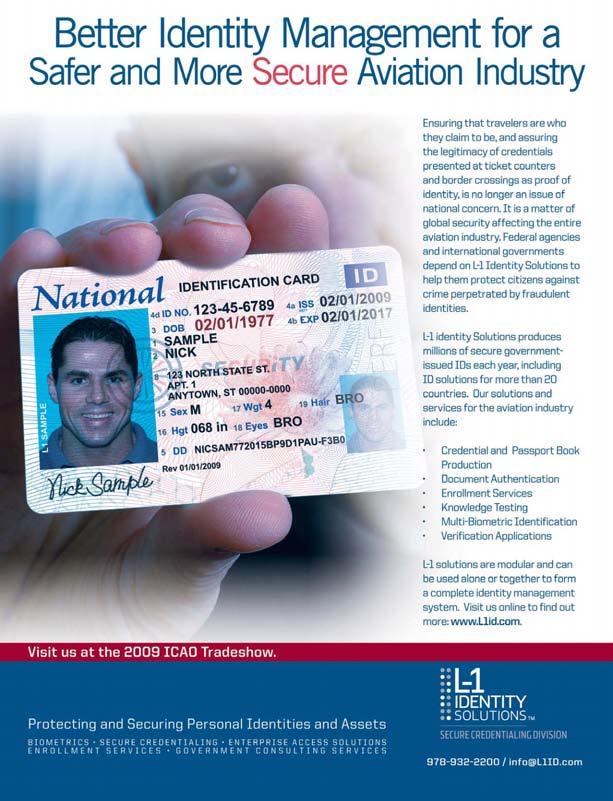From time to time, people ask us, “But why don’t you want to show ID when you travel? What’s wrong with that?” There are probably as many answers to that question as there are people who resist government demands to show ID when they travel, even when it’s scary and involves some personal risk to say “No” to the TSA agents and their rent-a-cops. But for one answer among many to the question, “Why?”, we asked one of those people, Joe Williams. He responded with the following guest blog post:
Why shouldn’t we have to show ID when flying?
Because it doesn’t make us safer, it’s unconstitutional, and truly free countries don’t require it.
Long after the ID-demand policy was implemented in the summer of 1996, 9/11 proved that ID requirements don’t work. Even if you are on a no- fly list all one needs to do is: Buy a ticket in some innocent person’s name. Check in online and print that person’s boarding pass. Save that web page as a PDF and use Adobe Acrobat to change the name on the boarding pass to your own. Print it again. At the airport, use the fake boarding pass and your valid ID to get through security. At the gate use the real boarding pass to board your flight.
Being required to show ID only proves the success of al-Qaeda with fear established and freedoms violated.
Most people are not aware that freedoms in the Constitution are “inalienable & natural” meaning we were born with them. They are not government granted. Just as the U.S. Constitution represents our inalienable right to life, liberty, & freedom, so too does the TSA represent a significant threat to those God-given rights. TSA protocol is to assume all innocent people to be a threat until being cleared from a secret list. Put another way, “The innocent shall suffer the sins of the guilty.”
Previous court decisions are referenced in justifying the legalization of ID requirements which translates into; it’s OK to violate a little of the people’s freedom, just not a lot. Most people are not willing to be inconvenienced to challenge these requirements, let alone initiate a real legal battle or protest. It’s easier to show ID than to fight for one’s rights and freedom.
And when legal challenges have been made against these secret “security directives”, courts have ruled they are secret laws and barred from public scrutiny or debate. Checkpoints & ID requirements are more commonly associated with governments who suppress freedom yet we implement them in the name of safety and security. In the name of national security, government can violate peoples’ freedom. Being forced to announce one’s self is a loss of privacy and “taking away a person’s privacy renders to the government the ability to control absolutely that person.” (Ayn Rand)
“In the end, the photo ID requirement is based on the myth that we can somehow correlate identity with intent. We can’t.” (Bruce Schneier, Chief Security Technology officer of BT Global Services) Surveillance is not freedom. Having to ask for permission is not freedom. Most elected officials believe the more legislation passed exerting more government control over people, the better off society is. The Constitution was written to restrict government yet most elected officials look for ways to circumvent instead of defending the Constitution as stated in their oath of office. It is not an elected official’s job to give freedom. It’s their job to defend it.
I would rather live in a higher risk society wrapped in freedom than live as a slave in complete safety & security.
Joe Williams
concerned citizen
Atlanta, GA
“Domestic travel restrictions are the hallmark of authoritarian states, not free nations.” (Congressman Ron Paul)
“Safety from external danger is the most powerful director of national conduct. Even the ardent love of liberty will, after a time, give way to its dictates. The violent destruction of life and property incident to war — the continual effort and alarm attendant on a state of continual danger, will compel nations the most attached to liberty, to resort for repose and security, to institutions, which have a tendency to destroy their civil and political rights. To be more safe they, at length, become willing to run the risk of being less free. The institutions alluded to are STANDING ARMIES, and the correspondent appendages of military establishments.” (Alexander Hamilton, Federalist No. 8, November 20, 1787)
“We uphold Freedom by exercising it – not by restricting it.” (The Identity Project)
